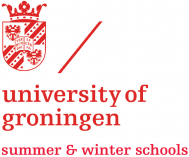8 July 2023
on course website
Anthropocene - How Humans Shaped the Earth
How did we shape our environments in the past and how did this lead to our current global challenges? This summer school will explore tools to study the manifestations of the Anthropocene in urban and rural environments.
How did we get here, how will we get out? This summer school offers tangible tools to study the history of the Anthropocene and theoretical perspectives to deal with it.
The nature of this debate necessitates crossing disciplinary boundaries, and while the term has not been officially accepted by the geological community it is already in use by a broad academic society. To truly understand this debate, one must get to its essence and critically examine the validness of definitions and arguments used.
In this summer school you will learn how to participate in an academic debate, how to formulate your own arguments and present these to an academic audience. Experts in different fields will present their case for the Anthropocene and share relevant insights. By exploring human imprints observed in various relevant research domains, this school will try to elucidate the essence of the debate and discuss how it relates to our current perception of human impact on the environment.
The school will be structured around four themes discussed during the first four days:
1. Shifts in subsistence and environmental impact (history, archaeology, economy)
2. Are we friendly neighbors? Interspecies relationships (biology, ecology, paleoecology)
3. Will Homo sapiens leave a geological mark? (geology, earth system science)
4. How anthropocentric is the Anthropocene? (philosophy, anthropology)
The fifth day will conclude the school. Students will present their stance on the Anthropocene based on arguments debated during the previous days. We aim to produce an academic output as a group following the school.
Course leader
Daniella Vos (Faculty of Spatial Sciences)
Canan Çakırlar (Faculty of Arts)
Target group
As the nature of this course is cross-disciplinary, no domain specific prior knowledge is required. The focus will be on participating in a scientific debate. This type of activity usually relates to a postgraduate (master / PhD) level, but highly motivated undergraduate students may apply.
Course aim
After this course you will be able to:
- Become familiar with the main arguments and definitions in the ongoing discussion about the Anthropocene.
- Deconstruct a scientific argument made by others and consider it from an epistemological perspective.
- Formulate and present scientific arguments contributing to a scientific discussion.
Credits info
2 EC
Preparatory work: 10 hours
Preparation of final presentation during summer school: 11 hours
Lectures, symposium and presentation sessions: 35 hours
Upon successful completion of the programme, the Summer School offers a Certificate of Attendance that mentions the workload of 56 hours (28 hours corresponds to 1 ECTS).
Fee info
EUR 275: Standard participation fee including welcome tour and drinks, lunch, coffee and tea, dinner with speakers on the closing night
EUR 200: For University of Groningen students (limited availability, on the basis of first come first served)
Scholarships
n/a
Register for this courseon course website

